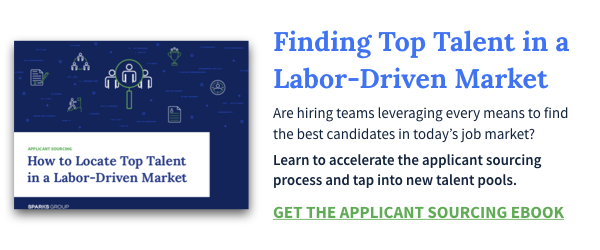
As more companies adopt new employment practices like hiring more remote workers, freelancers and non-traditional roles, contract-to-hire positions are growing more prevalent.
Contract-to-Hire Defined
In a contract-to-hire arrangement, a staffing agency and an employer agree upon a fixed length of time for employment. At the end of the predetermined period, the employer decides to either hire the contractor as a permanent employee or the contractor moves on to another opportunity.
Contract-to-Hire vs Temporary Workers
Many often confuse contract-to-hire and temporary workers. These two concepts have some similarities, but one major difference.
According to the US Department of Labor, “a temporary appointment is an appointment lasting one year or less, with a specific expiration date. It is appropriate when an agency expects there will be no permanent need for the employee.”
Temporary workers are hired for seasonal work, project work, to fill in during a full-time employee’s leave of absence and a variety of other reasons. Through all assignments, agencies that provide staffing and recruiting services serve as the employer for the temporary worker.
While contract-to-hire workers are also brought on for a specified length of time, there is a permanent need the company wants to fill. Therefore, should they be a good fit, the company has all intentions of offering the contract worker a permanent position once the contract period is up. At this time, the worker transitions from being employed by the staffing firm to being employed by the company.
Learn More About Temporary Staffing
The Benefits of Contract-to-Hire
Contract to hire arrangements allow both the contractor and the employer to benefit from a trial period to assess fit prior to the culmination of a permanent hire.
Employer benefit -- Contract-to-hire placements offer companies the opportunity to assess a worker’s technical skills, soft skills, and cultural fit before extending an offer of full-time employment.
By the end of the contract period, employers have witnessed firsthand, the value offered by the contractor by their demonstrated skills and fit within the organization. This can go a long way in assessing an appropriate hiring decision and salary offer.
Learn More: How Companies Benefit From Using Contract-to-Hire Employees
Candidate benefit -- Contract to hire arrangements allow candidates to try out the job and company culture before committing to a permanent position. It also allows candidates the opportunity to demonstrate their value to the company.
The Contract-to-Hire Process
If at the end of the set contract period, the employer should evaluate the workers performance. If it is found that the contractor is a good fit for the role based on skills, experience, and career goals, a permanent offer should be made. If the offer is accepted, the worker transitions from hourly to salary pay. Once hired full-time, the staffing agency is no longer responsible for paying the employee or providing benefits.
If interviews are not enough to thoroughly evaluate a candidate’s capabilities, a contract-to-hire position can serve as a trial run to ensure that the candidate lives up to their resume. This can significantly increase your rate of employee retention.
On the other hand, companies can also leverage the benefits of temporary employment by bringing on staff only when needed, without the burden of a clunky permanent workforce.
Sources: https://www.dol.gov/oasam/doljobs/tempemployees.htm







